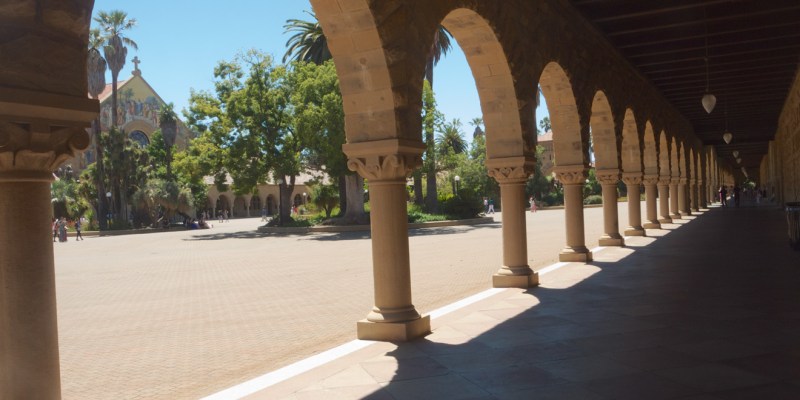Stanford has promised to protect privacy and provide legal aid for undocumented community members after the Trump Administration announced that Immigration and Customs Enforcement (ICE) raids on undocumented immigrants nationwide would start on Sunday.
The raids, part of President Donald Trump’s wider political goal to deport undocumented immigrants, were initially scheduled in 10 cities, including San Francisco, for June 23. However, in a tweet on June 22, Trump declared that he would delay the deportations by two weeks “to see if the Democrats and Republicans can get together and work out a solution to the Asylum and Loophole problems at the Southern Border.”
In the Bay Area, activists report that raids have already begun in Santa Clara and San Mateo County, though ICE has denied any unusual activity, according to The Mercury News.
Regardless of when or whether ICE raids occur on campus, Stanford maintains “firm support of [its] international and immigrant communities, including undocumented students,” wrote University spokesperson E.J. Miranda in an email to The Daily.
However, Stanford is not a sanctuary campus for undocumented immigrants. In 2017, Stanford Sanctuary Now (SSN) pushed the University to adopt the label, but University President Marc Tessier-Lavigne decided against it. Then-Stanford spokesperson Lisa Lapin said that Tessier-Lavigne believed the term was “not well-defined” and risked making Stanford a target of federal sanction affecting University students and employees.
Stanford has taken measures to protect the rights of undocumented immigrants. The University maintains that it will not release student and employee records unless legally required to do so, such as when presented with a court order (judicial warrant or subpoena). The Stanford University Department of Public Safety (SUDPS) does not have the power to enforce immigration laws.
“Consistent with the approach of law enforcement agencies in Santa Clara County, [SUDPS] does not inquire about immigration status in the normal course of its duties,” Miranda wrote. “[SUDPS] will not participate with other agencies in immigration enforcement activities unless legally required to do so.”
Stanford Law School provides free legal assistance for members of the Stanford community through its Immigrants’ Rights Clinic (IRC). The clinic offers support to immigrants across the Bay Area. Through the IRC, law students at the school can represent asylum seekers in court. The clinic also works on advocacy projects and develops materials to help those who cannot find a lawyer represent themselves.
“We regularly work with our community partners (local and national nonprofits, grassroots organizations, etc.) on a range of advocacy projects,” wrote Lisa Weissman-Ward, a supervising attorney at the IRC, in an email to The Daily. “These include preparing written Know Your Rights materials covering a diverse range of issues. Examples include the development of ‘red cards’ that are now distributed across the country advising individuals about how to assert their rights in the event of a raid or a targeted arrest at one’s home by ICE.”
These “red cards,” along with other educational materials such as information for those who plan to represent themselves in court, are on hand for any Stanford student who may require assistance.
“The IRC provides free and confidential legal consultations to any undocumented or DACA students who are currently enrolled at Stanford,” said Weissman-Ward. “In addition to the free and confidential legal consultation, we provide referrals to local nonprofits and private attorneys for full scope representation and/or legal advice.”
Contact Anahita Srinivasan at srinivasan.anahita ‘at’ gmail.com.
